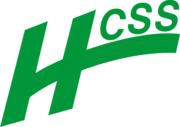
Best Construction Management Software 2026
What is Construction Management Software? Construction Management software helps professionals manage different pieces of the construction process, from planning to execution. Constructio Management software is not yet ubiquitous within the construction industry; many companies still rely on pen and paper. However, adoption of the software has been expanding as construction firms’ IT budgets increase. Users include general contractors, subcontractors, engineers, architects, and building ...
We’ve collected videos, features, and capabilities below. Take me there.
All Products
Videos for Construction Management
Learn More about Construction Management Software
What is Construction Management Software?
Construction Management software helps professionals manage different pieces of the construction process, from planning to execution. Constructio Management software is not yet ubiquitous within the construction industry; many companies still rely on pen and paper. However, adoption of the software has been expanding as construction firms’ IT budgets increase. Users include general contractors, subcontractors, engineers, architects, and building companies in a variety of industries.
Products in this category typically handle several of the following processes:
- Construction takeoff software
- Estimation of Materials cost
- Project management and scheduling
- Project design
- Cost accounting
- Bid management
- Field service management
- Safety and reporting
Construction Management Software vs. Construction Estimating and Takeoff Software
In the construction industry, estimating is the process of calculating the cost of a project. This includes monitoring and updating price during the job. Many construction companies use estimating software to calculate costs at various phases of the project. This includes:
- Pre-estimating - forecasting the cost of the job
- Job costing - monitoring expenses during the project
- Database comparison - using databases to compare material prices
Takeoff is another important part of the cost estimating process. Construction takeoff software allows contractors and project managers to estimate the cost and quantities of materials needed for the project using either hard copy or digital blueprints.
Some Construction Management products include estimating and/or takeoff capabilities, such as Procore and Viewpoint Spectrum. There are also takeoff, estimating, or Construction Takeoff and Estimating point solutions such as On-Screen Takeoff and PlanSwift that often have trade-specific takeoff tools.
Construction Management Software Features & Capabilities
Construction Management Software products include project management, job site data collection & reporting, and collaboration features:
- Plan distribution & viewing
- Document sharing
- Jobsite reports
- RFI tools
- Submittal management
- Collaboration & approvals
- Photo documentation
- Time cards
- Project management tools
- Job costing
- Building information modeling (BIM)
- Issue tracking & punchlists
- Mobile & cloud functionality
Some also offer construction estimating features such as:
- Takeoff tools
- Job Costing
- Cost databases
- Estimation calculator
- Bid creation
Other Types of Construction Software
Construction Management Software is often sold as a suite that includes a variety of capabilities. Sometimes these are available as point solutions for the construction industry as well. Here are a few options you might see sold as part of a construction management suite or as a standalone product:
- Accounting: Sage, Viewpoint, Quickbooks, CMiC, Jonas Software and Deltek Vision.
- Prequalification/Bidding: CMiC, iSqFt, Procore, SmartBidNet, Textura, Viewpoint, eBid Exchange and Pipeline Suite.
- Constuction Takeoff and Estimating Software: On-Screen Takeoff, HeavyBid, Bluebeam Revu, Planswift, B2W Estimate, Trimble Accubid, ProEst, Sage Estimating and WinEst. These types of products are some of the most likely to be sold as industry-specific point solutions.
- Project Management: Viewpoint, Prolog, Procore, PlanGrid, Constructware, and CMiC. Non-industry specific solutions, like Primavera and Microsoft Project are also commonly used.
- Building Information Modeling (BIM) and Computer-aided Design (CAD): Revit (Autodesk), Navisworks (Autodesk), Sketchup(Trimble), Tekla (Trimble), QTO (Autodesk), and Assemble Systems.
- Job Site Data Collection & Reporting: Autodesk's BIM360, B2W, HCSS, Procore, PlanGrid, NoteVault, and Viewpoint.
- Customer Relationship Management (CRM): Cosential and FollowUp Power. CRM for construction is still not a focus for software vendors. Horizontal solutions can work in some cases.
- Cloud Storage, Collaboration, and Web Conferencing: These areas are a crucial part of the construction software stack. Many companies do not use industry-specific solutions. Construction software solutions include PlanGrid and Bluebeam Revu. Both have cloud storage and collaboration capabilities. They are tailored to construction needs as a go-between for the office and field. Industry-specific options have more robust features than horizontal tools (DropBox, Adobe Acrobat DC, etc.). Additional features allow better handling of drawings, markups and file sharing.
- Other Emerging Technologies: Augmented reality, virtual reality, drones and 3D printers hold promise for construction.
Construction Software Comparison
To compare different talent management products, consider these aspects of each software offering:
1. Comprehensiveness: Construction software is a broad category with comprehensive tools that cover the entire scope of construction management and some that are more niche and focus on key aspects of running a construction business. Some buyers may want to use a comprehensive tool as a one-stop shot for all their construction company needs whereas others are happy with their existing construction management systems, but would like to use a budgeting/estimating tool that’s more specific to the construction industry versus sticking with Microsoft Excel, for example. Niche tools may also be cheaper to use than more comprehensive ones, so it may not always make sense to get the tool with the most features possible, if you’re already enjoying those features in software you already use and are going to keep.
2. Templates: Construction software should help you save time and effort, as well as help prevent mistakes. Built-in templates to complete the tasks you need for each project are crucial. Before purchasing construction software, make a list of the required task you need help with and then identify the software available that has all the tools you need. Common templates provided in construction software are for project portfolios, accounts payable, general ledger reporting, purchase order management, and transmittals, as examples.
3. Mobile-friendliness: The majority of construction work obviously does not take place in offices, but on build sites. Owing to this, construction software needs to be accessible and easy-to-use from mobile devices. While you may not need an application that works on every type of device available, make sure the construction platforms you’re considering or compatible with mobile devices used by your organization.
Start a Construction software comparison
Pricing Information
Construction software pricing depends on the purpose of the tool and the scale of its deployment and varies widely. For example, tools designed for cloud-based project management are typically priced on a subscription model. Prices start at around $40/mo. Other tools focused on bidding and approval may be priced with a much larger, one-time license fee. Licenses are usually at least $10,000.
























